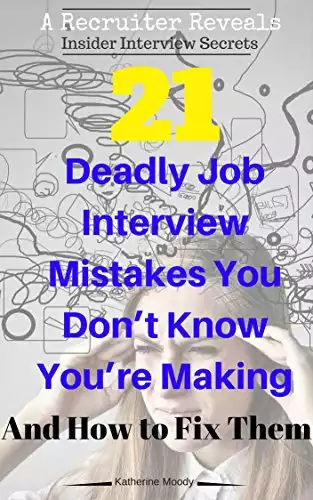We may receive compensation when you click on links to products from our partners.
Interviews can sometimes involve questions that are ambiguous or perplexing. As a result, you might be uncertain about your performance. Particularly in situational interviews, many candidates are left wondering about how their responses and overall performance were perceived by the interviewers.
Prepare for These Tough Questions
- Tell me about yourself.
- Why do you want to work here?
- What are your strengths and weaknesses?
- Can you describe a difficult work situation and how you handled it?
- Where do you see yourself in five years?
- Why did you leave (or why are you leaving) your last job?
- What can you offer us that someone else cannot?
- What are your salary expectations?
- How do you handle stress and pressure?
- Do you have any questions for us?
What are situational interview questions ?
These questions are crafted to stimulate your thinking, help you dissect a particular situation, and guide you toward the most effective resolution. They aim to delve into your behavioral and cognitive processes. By posing these queries, the interviewer can uncover distinct facets of your personality, decision-making prowess, and overall work style. The inquiries might focus on areas such as interpersonal skills, analytical abilities, your capability to perform under pressure, multitasking skills, or a wide array of other attributes.
There can be vague and confusing questions asked during an interview that throw you off when you are trying to be at your best during an interview for key positions, such as management consulting, strategy consulting, or investment banking jobs.Click To TweetWhy do companies ask situational interview questions ?
Your resume serves as a comprehensive list of all significant projects you’ve handled, the diverse roles you’ve assumed, and the milestones you’ve reached – all crucial information for a potential employer. It’s beneficial to hone your skills in crafting a compelling resume, as you may face questions related to it during your interview. At this juncture, recruiters are not solely focused on your past accomplishments. They’re keen to understand your approach to overcoming obstacles and achieving your goals. By analyzing your responses, they can predict how you might handle unprecedented challenges in the future.
Sample situational interview questions
Here are some examples of situational
- Have you faced a situation wherein you had a conflict with a difficult colleague? How did you handle the situation?
- Have you ever been self-motivated to accomplish your goals?
- How do you take criticism? Think of a situation when you were criticized. What was your reaction?
- Describe a situation where you were unable to deliver. How did you manage and what did you learn?
- Have you faced a situation where your decision or opinion was different from the majority as you were not convinced about it? What did you do in that situation?
- Give us an example of a situation where you had to make a difficult decision based on very little data.
- Do you think you had a work-life balance in your previous job? If yes, how did you achieve it?
- Have you been faced with having to think beyond the conventional approach while solving a problem or making decisions?
- Have you ever handled multiple projects or tasks, each of them equally important, having stringent deadlines?
- Can you think of a time when you went beyond your area of technical expertise and proved your skills on the non-technical side?
How to answer situational interview questions ?
For each question that you encounter, don’t feel tempted to get started with an immediate response. Instead, take some time to ask yourself these additional questions:
- What is the interviewer really trying to get out of this question?
- What kind of skills would I need to mention to assure the Recruiter that I have what it takes to be a perfect fit for the new role?
- How can I answer this question with real-life events, rather than sounding vague or diplomatic?
Once you’re done with your thinking, answer systematically so that the interviewer gets convinced that in addition to the other skills, you also have clarity of thought and good communication skills.
Small Mistakes, Big Consequences for Interviews is a lighthearted look at the top 20 interviewing mistakes that people make without realizing the potential consequences. Learn how to identify these common character mistakes that can make or break your interview—and hiring prospects.




